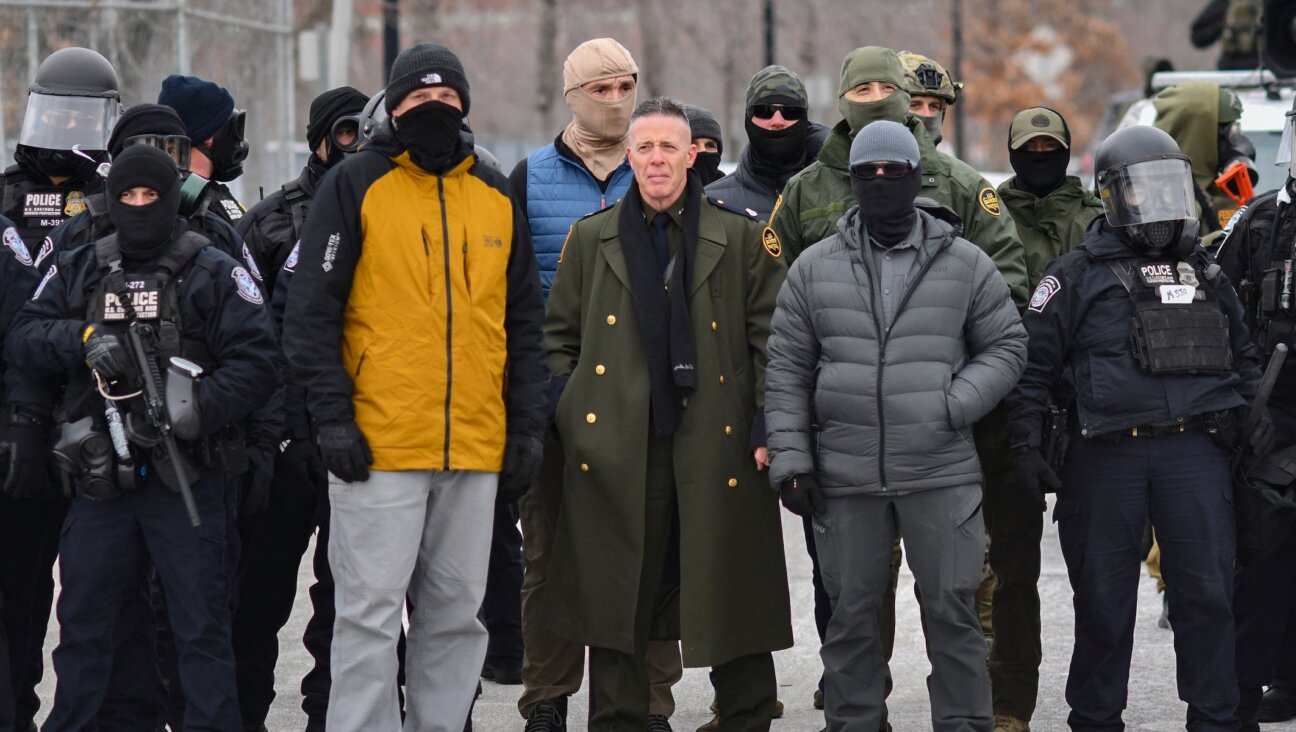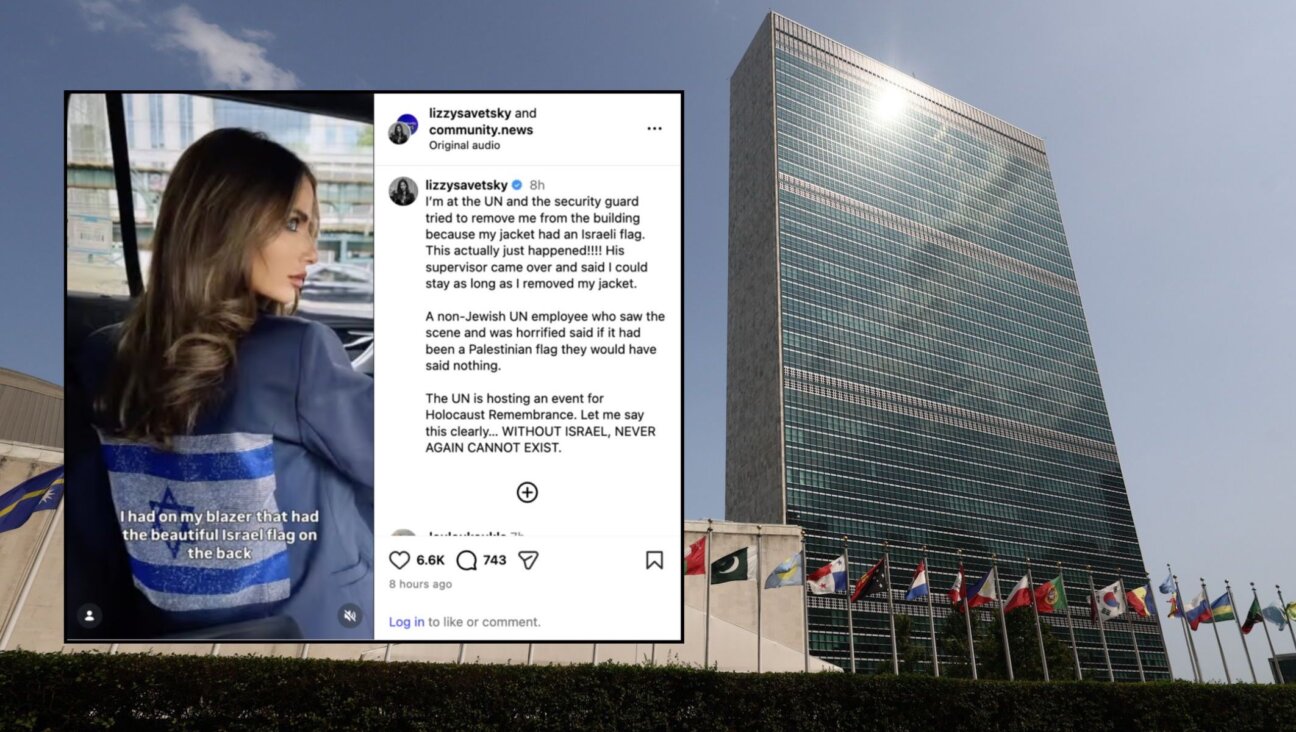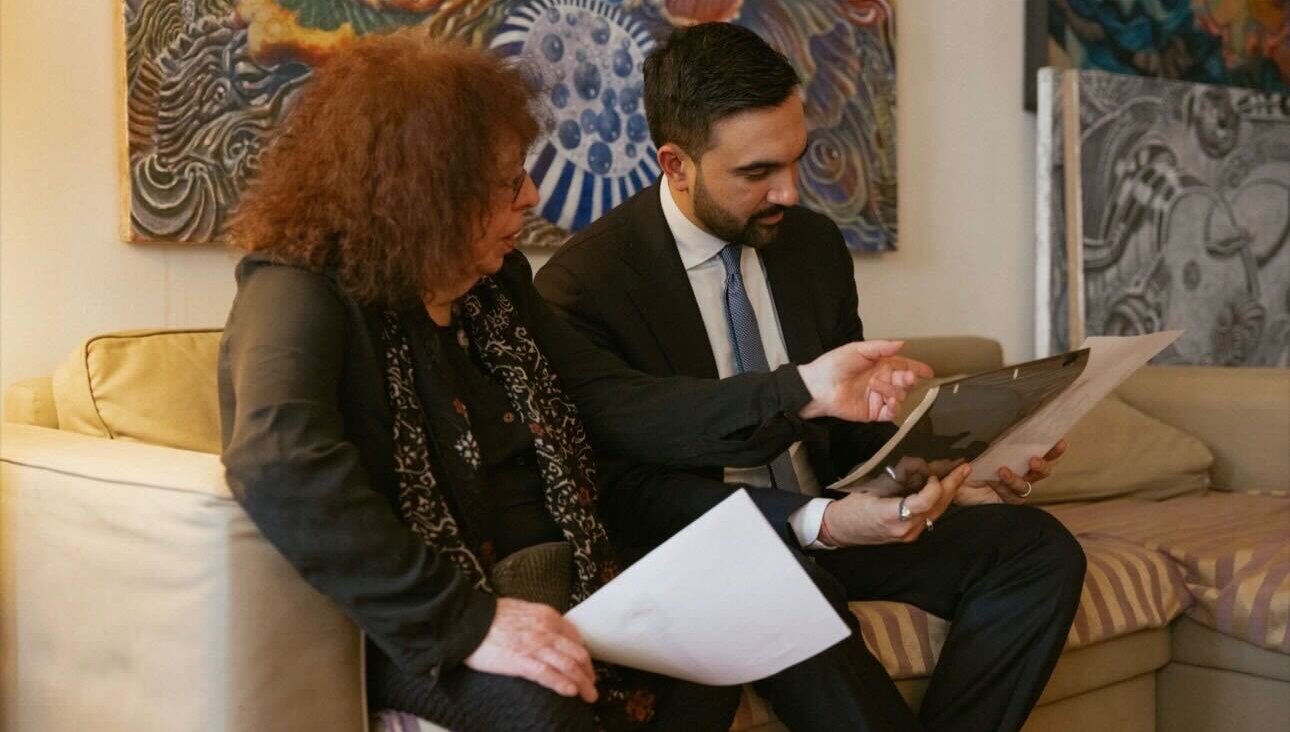Historic Boise Synagogue Preparing for Its Dramatic Relocation
This year during the High Holy Days, in addition to praying for the health of their families and the welfare of the State of Israel, the members of Congregation Ahavath Beth Israel in Boise, Idaho, prayed for the physical well-being of their synagogue. And with good reason: It is being uprooted, literally. The synagogue — the oldest continuously used Jewish house of prayer west of the Mississippi — will be hoisted onto a flatbed truck and moved on Saturday to its new home three miles across town.
The Reform synagogue has outgrown its present facilities and needs to provide more classrooms and worship space for its expanding 210-family congregation. The Moorish-style building will become the centerpiece of a new $3 million complex housing two wings of administrative and educational facilities, an outdoor amphitheater and a landscaped garden.
“Rather than risk seeing our synagogue turned into a commercial development, such as a restaurant or law offices, we decided to integrate it into the design of our new facility, where it will serve as a touchstone for generations to come,” said Becky Groves, chair of the congregation’s building steering committee.
The building was completed in 1896, one year after Moses Alexander, the nation’s first elected Jewish governor, and 24 other members of Boise’s Jewish community formed the congregation. Modeled after a synagogue in Toledo, Spain, the historic structure features a Romanesque interior, keyhole-shaped arches and pastel stained-glass windows. In 1972, it was named to the National Register of Historic Places.
“What’s happening in Boise with their preservation solution is an incredible success,” said Diane Cohen, co-director of Partners for Sacred Places, a nonprofit organization dedicated to helping congregations maintain their houses of worship.
After a Havdalah ceremony marking the end of the Sabbath on Saturday, the building’s move will kick off at 11 p.m., followed by a community-wide walking procession featuring a klezmer band and a ritual carrying of the Torah. Visiting clergy and Jewish scholars will offer readings and prayers along the route, which will stop at Alexander’s graveside and then conclude with an 8 a.m. service at the new site.
As the date approaches, some congregants have expressed apprehension that all might not go smoothly.
“We’re holding our breath a little bit,” confided the synagogue’s president, Steve Berenter, as workmen secured the stained-glass windows and placed steel beams underneath the 60-ton structure.
“It’s something you know has to be done, and it’s going to be wonderful once it’s over, but it’s very difficult to watch the process,” Groves said. “It’s like having your child go through surgery.”
International Gay Celebration Slated for Jerusalem
The second-ever global celebration of gay culture is going to be held in 2005 in Jerusalem, a religiously conservative city not known for its welcoming attitude toward gays and lesbians.
Approved by a delegation of representatives meeting at the 22nd annual InterPride Conference last week in Montreal, organizers say they want religious institutions to show tolerance toward those who choose to fulfill their identities as gay individuals.
The first WorldPride day was held in 2000 in Rome. Representatives argue that the venue choice is not an anti-religious statement; rather, they insist, they must take their message to the heart of the religious world because it is the source of so much discrimination toward homosexuals and because the city’s diversity can speak to the participating organizations’ pluralistic ideals. After decriminalizing homosexuality in 1988, the Knesset has moved swiftly on several gay-rights issues: Anti-gay discrimination in the workplace was banned, and both the Supreme Court and the military have recognized same-sex domestic partners as eligible for spousal benefits. But Orthodox religious authorities have not been as forthcoming, refusing to yield on issues of same-sex marriage and the ordination of gay rabbis.
“Doing this in Jerusalem is so much more interesting and special — because of the diversity of the city, because you have Arabs and Jews together, secular and Orthodox — and that’s something very special I don’t think you get anywhere else, not even in Israel,” said Hagai El-Ad, executive director of Jerusalem Open House, a gay and lesbian community group in Jerusalem and the principal sponsor of WorldPride 2005.
Founded in 1997, Jerusalem Open House began gaining momentum in 1999 after opening its Ben Yehuda Street community center, where it offers counseling and outreach services to Israelis regardless of sexual, political or cultural orientation — a notable departure from other gay community organizations in Israel, according to Scott Gansl, president of the World Congress of Gay, Lesbian, and Bisexual Jewish Organizations.
Much of Jerusalem Open House’s support comes from the American Friends of Jerusalem Open House, which has helped raise most of the group’s operating budget.
Though the politically moderate Meretz and Shinui parties have embraced the gay community’s message of inclusiveness, Gansl says he expects there to be protests and “grandstanding” in the Knesset and among politicians such as Jerusalem’s first ultra-Orthodox mayor, Uri Lupoliansky. Two weeks after securing political office in June, Lupoliansky withdrew his support for Jerusalem Open House. In a reference to the group’s annual gay-pride parade, Lupoliansky recently said in Ma’ariv: “Jerusalem Pride is an abomination… a terrible thing that does harm to youth.”
Lupoliansky’s office could not be reached for comment.
Though many InterPride representatives supported the Israeli choice, advocates for Jerusalem’s bid came up against resistance from delegates who objected to Israel’s actions in its conflict with the Palestinians.
“Gay pride is fighting racism and phobias, but we’re a mirror image of what’s out there,” said Suzanne Girard, co-president of InterPride, referring to those who voted against the bid in protest of Israeli policies.
Girard added that the organization is aware that Israel is a “political hotbed” and noted that the delegates had chosen to endorse the bid because of their faith in Jerusalem Open House and because of the spotlight that would be cast upon religiously intolerant communities.
“It is a risky thing to have done, but I think we’re ready,” she said.














